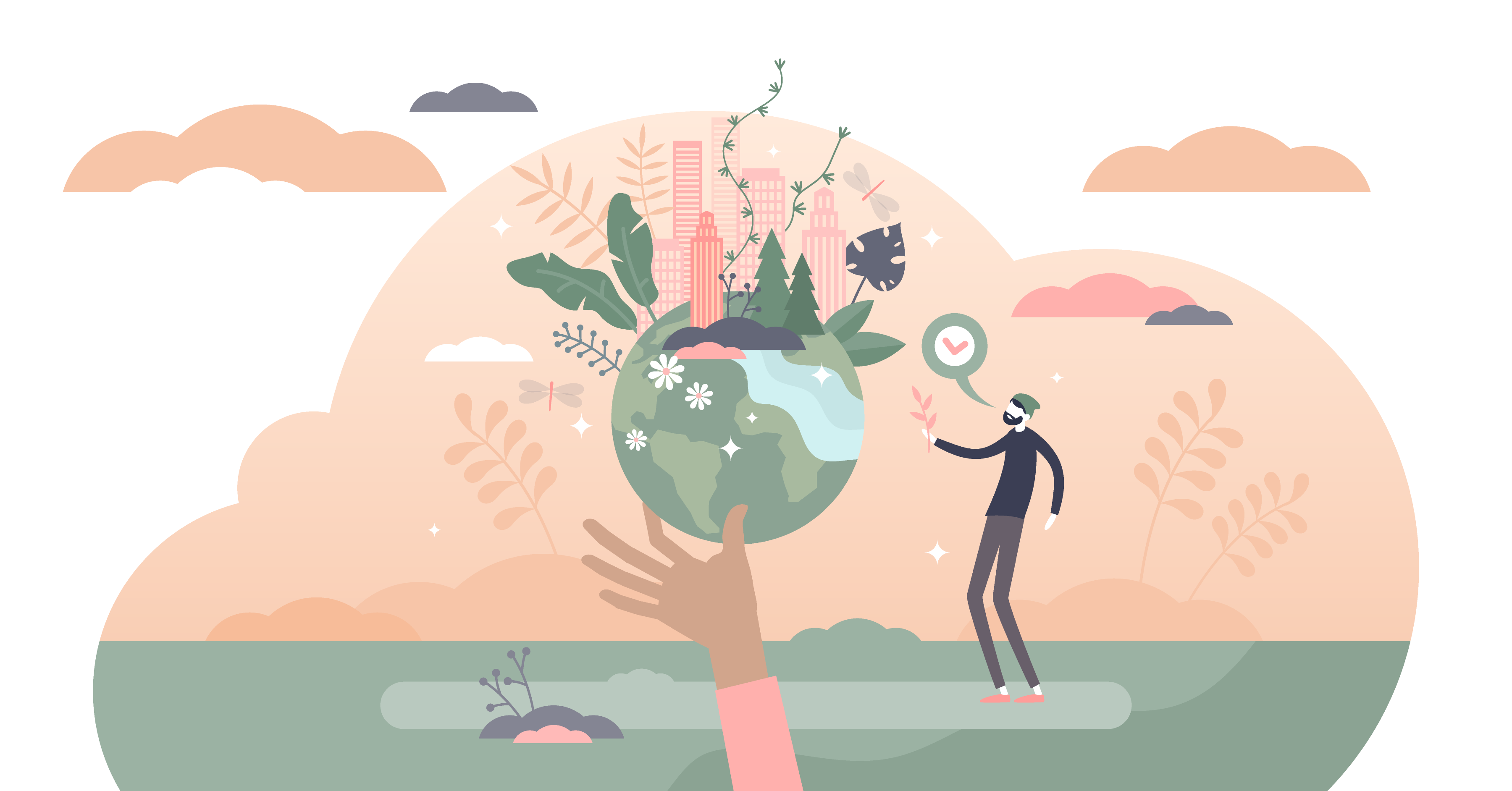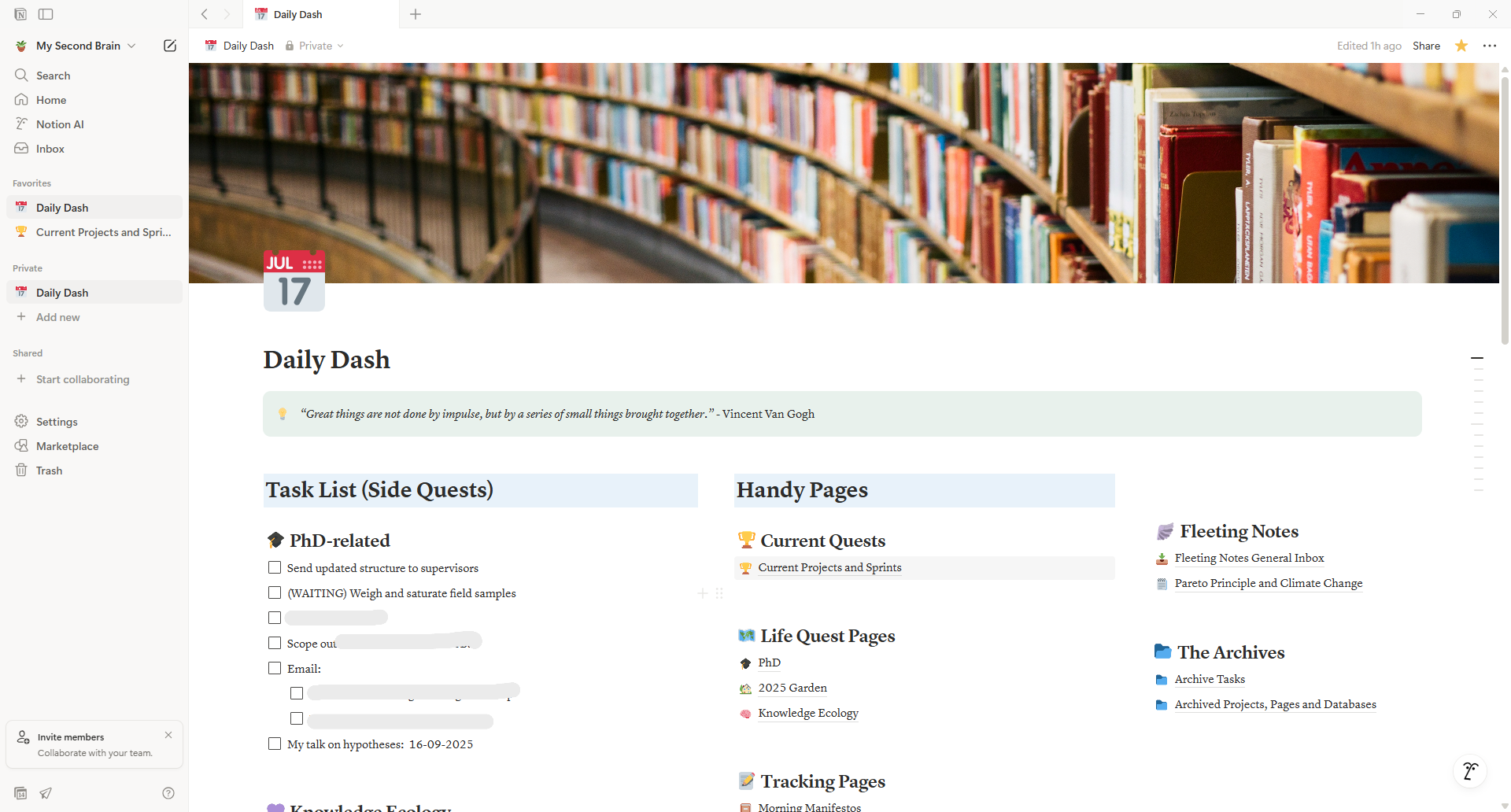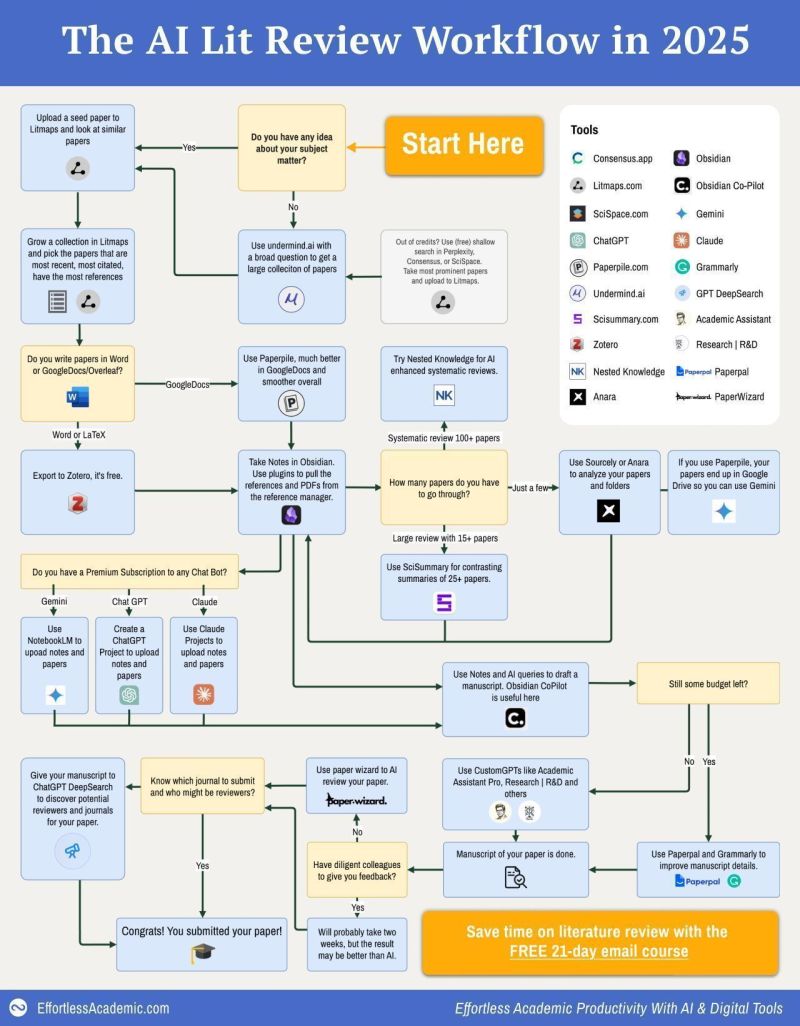Explore | Embrace | Enjoy -🧠 STREAMLine 3️⃣2️⃣
It has been a busy week on the Knowledge Ecology front!

Welcome to the new style and newly named Knowledge Ecology 'STREAMLine' newsletter! In a lot of effort to reflect on what I want Knowledge Ecology to be and represent, I've done some deep soul searching, and decided to develop and launch three things:
- A new framework by which things will centre around (and which I love btw!): Explore who you are | Embrace what you find | Enjoy what you do. It's designed to put ourselves and all our superpower quirks at the centre of our personal research ecosystem rather than trying to fit ourselves into a pre-fab environment. I'm excited to see where this will take us.
- A new newsletter title that is a little less brain and a little more STREAMLined ...
- The Joy of Writing - a guide to help you find writing for thinking and research a little more fun
And then there are the things that are just important: the things I'm not doing any more. I'll talk about these later. But first something we don't do enough of in our digital lives: housekeeping. We all love it don't we?! (😅).
🛖 House-keeping
As you can probably relate to, we all like to keep a tidy house. This is a request to you, that if you no longer like what I write, then please unsubscribe. I'm not trying to get rid of you, it's quite the opposite: I love you for letting me into your inbox. But I also want you to love what you read too and if you no longer think you will find joy or value in what I write then this is my permission slip to - in grand Elsa style - "Let It Go". Clear your inbox, clear your mind: STREAMLine. You have my blessing.
I realise that as I consolidate into one email list from across different platforms you may no longer wish to subscribe. At the bottom of this email there is an unsubscribe link - please click and you will no longer receive the newsletter.
That being said, it's onto the fun stuff.
🗺️ Here is what I've been Exploring
This past month I've been exploring putting myself 'out there'. The development and publication of my Joy of Writing guide has pushed past some major personal barriers. It is the ultimate discomfort experiment if you will. In this sense I've been exploring perfectionism in its sweetest form: putting something out there before I'm 100% happy with it. We don't often think about how emotional pain can stay with us, even when we're proud of something we have achieved. So I'm trying to sit with this feeling and stare it in the face for while.
On the back of this face-staring, I have drafted an email to send to close friends explaining what I'm planning with Knowledge Ecology and whether they would be interested in joining me for the journey. Now, I haven't hit send yet. I'm just sitting with it for the time being. I'm allowing the feeling to mellow and see how perfectionism and imposter syndrome flex their muscles.
🤗 Here is what I've Embraced
Things I'm exploring and embracing this week are very closely aligned. As I try to embrace perfectionism and imposter syndrome I've realised it can help to look at the world more widely.
I only have to look at the news and see the UK political debacles that are Peter Mandelson and Angela Raynor, and the wider world political issues. Whilst this might not entirely count as 'perspective', it does help me feel a little more grounded in my own ethos and challenges. I'm not in any way political, but I feel a little more perfectionism and imposter syndrome within influential government figures, might be more than a little bit helpful to global politics...
As I flip what perfectionism and imposter syndrome mean on their head, I realise that they are empowering in the sense it means I want to continually do better. A little more of that in the wider world could only be a good thing, don't you think?
🥳 Here is what I've Enjoyed
This week I've really enjoyed learning to run a Redundancy Analysis on some early fieldwork data. I love learning how to use new techniques and exploring their benefits and limitations.
I've also really enjoyed developing and STREAMLining Knowledge Ecology, the details of which I discuss below.
On a personal note, I'm also learning to make a window cushion using some leftover memory foam mattress. Its a make-it-up-as-you-go-along affair so it helps improve my confidence in not having a plan. Sometimes a vision works just as well.

Personal Research Ecosystem developments
I'm increasingly enjoying Notion as a life OS system. I think its too easy to get rabbit-holed into complex templates and databases. Notion is particularly notorious. When I've tried Notion in the past - and TBH this applies for any note-taking software I've tried - I've been intent on super organising everything. Whilst this might seem to be what 'organisation' represents, it quickly becomes unsustainable. You would think I would learn to try a different approach after the first few times ...
This time, I am starting from basic functionality and then building as I go. The urge to over-organise is very real, but I come back to what I realise has become my new Knowledge Ecology philosophy: Explore | Embrace | Enjoy. I'm not focusing on doing what I think I want based around what others tell me I most likely do, I'm exploring and embracing my feelings and personal needs first.
Taking such a restrained approach might seem counter intuitive to 'getting organised' but I'm finding it quite liberating. It is best described using an analogy. Imagine the difference between trying create your perfect house from the outset, and starting with a tent. This highlights two things to me. Firstly that designing the 'perfect house' is impossible. And secondly, living in a tent for an extended period of time (in Scotland anyway) becomes pretty miserable without some basic additions. In essence, I've found it helpful to separate the wants from the needs - we might want a perfect house, but we only need 20% of what is in it on a regular basis. The rest is just: "wouldn't it be great to have this thing for the one day a year when we need to do this other thing". Then we spend all our lives trying to make it fit in/clean/reorganise the space we built to hold it.
With Notion by starting from the bare bones, I'm learning and creating as I go, identifying what is genuinely useful and what is just another 'beautiful' but entirely dysfunctional organisation system.

I'm not focusing on doing what I think I want based around what others tell me I most likely do, I'm exploring and embracing my feelings and personal needs first.
Knowledge Ecology Ecosystem developments
There have been some major steps forward in developing knowledge Ecology this week. Here is what has changed:
- The first thing you will hopefully have noticed, is that the newsletter name has changed. I changed to STREAMLine because I think it aligns better with where I'm headed.
- I'm developing a framework by which knowledge Ecology will operate going forwards: Explore who you are | Embrace what you find | Enjoy what you do. I can't tell you how excited I am about it and what it means. You'll see this newsletter follows the framework. If you want a few more details head to this page of the blog, but for now it's very much in pre-alpha stage.
- I now have a business LinkedIn page so please join me there. I officially have 1 follower at time of writing 😁 (👶🏻👣)
- I'm starting to develop the Joy of writing into a PDF as I iterate on Version 1. This is super fun though its taking a while.
And here are those house-keeping things I have done:
- I'm no longer using Substack. I decided I'm spreading myself too thinly over platforms so I said my goodbyes and left. Whether this is the correct decision given Sub stack's growth, I don't know. I found the community a bit... weird... I'm not sure what it was, but it just seemed overly 'virtuous'!? Maybe that was just me but I didn't entirely vibe. It's likely I'll go back one day, but for now I'm closing the door.
- As such, I've consolidated all emails from Medium, Substack and Ghost into just Ghost where I will now manage everything
- All posts I've ever written are now in Ghost - would you believe there are over 100! However I'm realising many are out of date, so I've got a big job ahead of me. I'm going to be aligning them to my Explore / Embrace / Enjoy method.
Research Thinking
I've been thinking a lot this week about something I'm calling "assumed consensus". It is a concept I'm really concerned about as AI tools - and their influencers - come to the fore in research summarisation. In my current notes, I have summarised assumed consensus thus:
"Assumed consensus" relates to the boiling down and re-boiling down of very comprehensive and complex work into single messages. These messages lose their nuances and caveats, quickly becoming subject to an assumed consensus of opinion and output.
The idea is not new to AI models: it's not uncommon for research papers to lose their nuances over time, the messages change and how they are cited is not entirely appropriate given the findings of the original paper. In fact, that's exactly the problem. "Assumed consensus" is built into AI models such that I'm not sure they can make new/different interpretations given their output will always be a consensus of what people have written before. We need to remember that AI LLMs are predictive text models, not researchers on the front line of novelty. In addition, AI models are not, generally speaking, trained on research papers. When I asked Claude.ai about how much of the underlying data was based on peer-reviewed research, it told me it's a trade secret.
What this means is that by relying on an AI summarisation of a paper - i.e. not reading it 😱 - we are leaning heavily into assumed consensus.
This LinkedIn post by an 'academic influencer' highlights the sort of thing I'm concerned about:

I find the approach a little terrifying if I am being honest.
Now to make it clear I am not against the use of AI tools. Far from it: I would advocate them and I use Claude.ai almost every day. I would describe my use as having access to a "very intelligent and overly kind knowledge sparring partner who doesn't understand what they are actually talking about". When used appropriately AI tools can supercharge your work and your thinking, but when used inappropriately - such as using it to avoid reading papers your peers have given over their blood, sweat and tears to - to up your own publishing game then I have major concerns.
AI is very often incorrect in its interpretation, or outright wrong. Here's an example of where I was using Claude.ai to verify my own calculations:

I can't remember whether the figures we got were the same because I was more alarmed about its clear lack of ability to understand that 3.85 does not equal 2.93+1.85.
Such issues are not uncommon; this especially applies to lesser known and understood fields like interdisciplinary concepts and soil science.
[After I had written the above section, a timely email from GLIA-Leadership, popped into my inbox. It links to their blog post on "How AI Can Help and How It Can't". They write along similar lines to myself:
"AI is less powerful when you are already an expert. There it can slow you down. That does not mean AI is completely useless for professionals. It depends on the task. For routine work, boilerplate, or search, it saves time. For novel, open-ended challenges, it drags you down because you need to double-check everything, and sometimes you have to fix it. It also cannot go beyond what is known to humankind by design, which means it cannot be creative in the sense of thinking thoughts that have never been thought before. For beginners and mid-level performers, it accelerates tasks enormously and produces outcomes far beyond their actual skills. AI speeds up familiar, well-defined work and slows down open, novel problems because verification costs rise."]
This 👉🏻 "produces outcomes far beyond their actual skills" is the scary bit. Knowing when AI is wrong, is much more time and skill-consuming than using it when it is right. This simply put, is experience 'doing the thing' not modelling the thing. And that 'doing the thing' includes reading your peers' papers...
Do you think I'm wrong?
I'd love to know your thoughts on this! Lets open up the debate. Leave a comment if you are a member, send an email to annette@knowledgeecology.me or message me on LinkedIn.
Research Inspiration
- If you are looking to improve your speaking confidence, I love Vinh Giang - he has a couple of free masterclasses on his website, or his YouTube channel is great too.
Thanks for reading! Until next time, keep STREAMLining 😜
Annette X
[No AI was used in the writing/editing/anything of this post. Mistakes and opinions are all my own]

